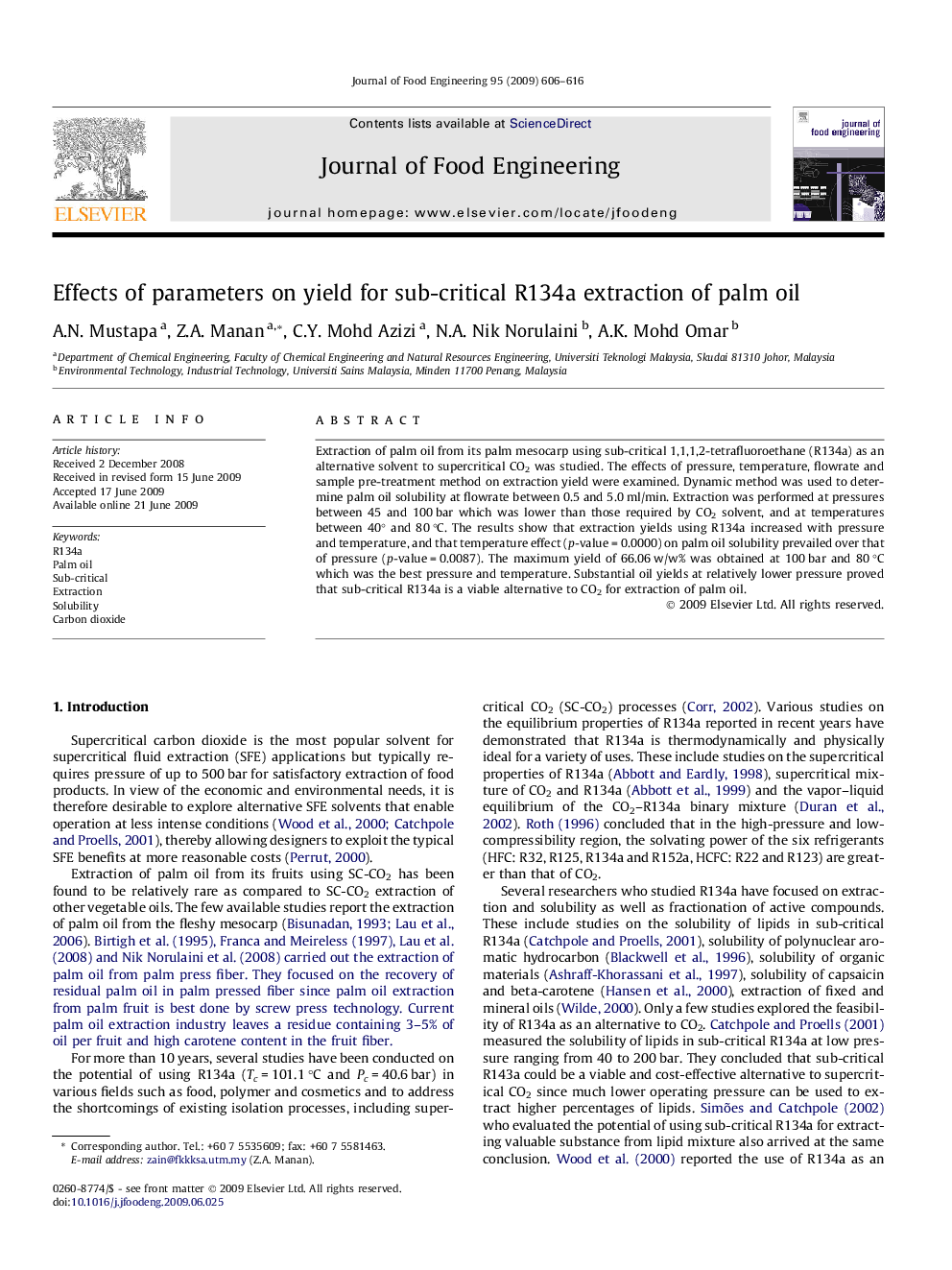| Article ID | Journal | Published Year | Pages | File Type |
|---|---|---|---|---|
| 224372 | Journal of Food Engineering | 2009 | 11 Pages |
Extraction of palm oil from its palm mesocarp using sub-critical 1,1,1,2-tetrafluoroethane (R134a) as an alternative solvent to supercritical CO2 was studied. The effects of pressure, temperature, flowrate and sample pre-treatment method on extraction yield were examined. Dynamic method was used to determine palm oil solubility at flowrate between 0.5 and 5.0 ml/min. Extraction was performed at pressures between 45 and 100 bar which was lower than those required by CO2 solvent, and at temperatures between 40° and 80 °C. The results show that extraction yields using R134a increased with pressure and temperature, and that temperature effect (p-value = 0.0000) on palm oil solubility prevailed over that of pressure (p-value = 0.0087). The maximum yield of 66.06 w/w% was obtained at 100 bar and 80 °C which was the best pressure and temperature. Substantial oil yields at relatively lower pressure proved that sub-critical R134a is a viable alternative to CO2 for extraction of palm oil.
